Trust is the second most important word in marketing.
Visibility is the most important. If you aren’t getting noticed, everything you do is wasted.
But given your message is getting out there, if you aren’t trusted, you may as well not be communicating. For you could be saying all the right things, even in all the right ways and places, and yet be utterly ignored.
“The Boy Who Cried Wolf” is totally a parable for marketing.
But there are many things that impact whether you are trusted. Here are three big ones.
IS YOUR INDUSTRY TRUSTED?
I only need to say “used car salesman” to make the point. Some industries have such a bad reputation (usually deserved) that you start out with four strikes against you.
Our own industry – internet marketing / search engine optimization (SEO) – is one of these. Almost any business person has stories of hiring someone to do SEO for them and getting nothing for their money, or worse, the vendor’s actions damaged their search rankings or even got them blacklisted by Google.
The reasons for this are not hard to see. The demand for online marketing is FAR, FAR in excess of the availability of competent companies to deliver it. That naturally attracts incompetent or even criminal vendors to peddle their wares to unwary businesses.
The typical businessman doesn’t know enough about the business of internet marketing to tell whether he is being peddled fool’s gold or the real stuff. And since it takes several months to produce results in most cases, many of these incompetents survive on the amount of time it takes a business to realize they made a mistake and to fire them.
Faced with this situation, you make lemonade out of lemons. You prove to your prospective clients that you are different, you do good work. Then they flock to you. You are the “anti-” whatever they are. I know a PR company whose marketing is based entirely around that concept. It works because “everyone knows” That PR companies are expensive and don’t produce results.
There are many ways to do this. One thing we do: We don’t require (in contrast to usual industry practice) any commitment period. They can fire us at the end of any month. I’ve even had a prospect (themselves a knowledgeable marketer) say to me that he knew we must be competent because if we weren’t, we would long since have gone broke operating that way.
If you are working in an industry with a bad rap, don’t underestimate what it takes to get that point across – that you are different and you are competent.
PROFESSIONALISM
Maybe it shouldn’t be this way, but the professionalism of your marketing efforts goes a long way towards establishing trust (or blowing any chance of being trusted.
People feel that if your marketing efforts are amateurish, your work must be amateurish.
So be and look professional in your marketing communications, at every level.
Text should be well written and free of typos and grammatical errors. The TONE of the communication should be appropriate to its use. A communication can be too casual and slangy. It can also be too stiff and formal sounding.
Marketing communications, whether email, print, web or otherwise should look good, aesthetic and appropriate.
The places where things appear also need to be appropriate. You wouldn’t put an ad for multi-million dollar computer installations, in a comic book. That isn’t just because that’s not where your customers are looking. You won’t be taken seriously.
YOUR REPUTATION
Businesses have reputations. These are most visible online in Google Reviews. Some industries have special sources of reputation information, the Legal profession for example.
You ignore these at your peril.
What do people do when they are looking for a particular local service? They Google it. The first TRUSTED thing they see is a Google Maps display, showing the top three providers (in Google’s estimation) near your location. If you aren’t in that “3 pack” also known as “Map Pack” you are seriously missing out.
I say first TRUSTED because at the top of the screen are usually ads. But people automatically discount them because they are bought and paid for ads – not an endorsement at all. People know this and most people skip them.
Those Google map listings come from Google Business Profile (formerly Google My Business). The factors that go into determining whether you show up on any given search, include how close your business is to where physically the person is searching from, how closely your profile matches the search, how complete and consistent that profile is and the quantity of Google Reviews you have.
Now, let’s say you’re in the 3-pack. You have 60 reviews, the other two businesses have 30 and 20 reviews. You have an average 4.7 rating, your competitors have 4.4 and 4.2. Not only that, your reviews are more recent.
Guess who gets the call? You do, and that is regardless of whether you are 1st, second, or third in the listing.
Why? Everything I’ve described tells people you have a better reputation. One that can be trusted because they trust Google, and because it isn’t just one opinion but a whole bunch of people saying it.
Google works hard to keep people’s trust, as that is essential to the equation, and they know it.
TRUST. It’s a very big deal.








